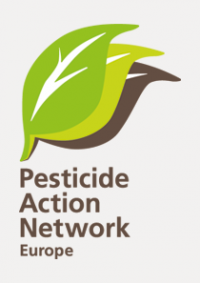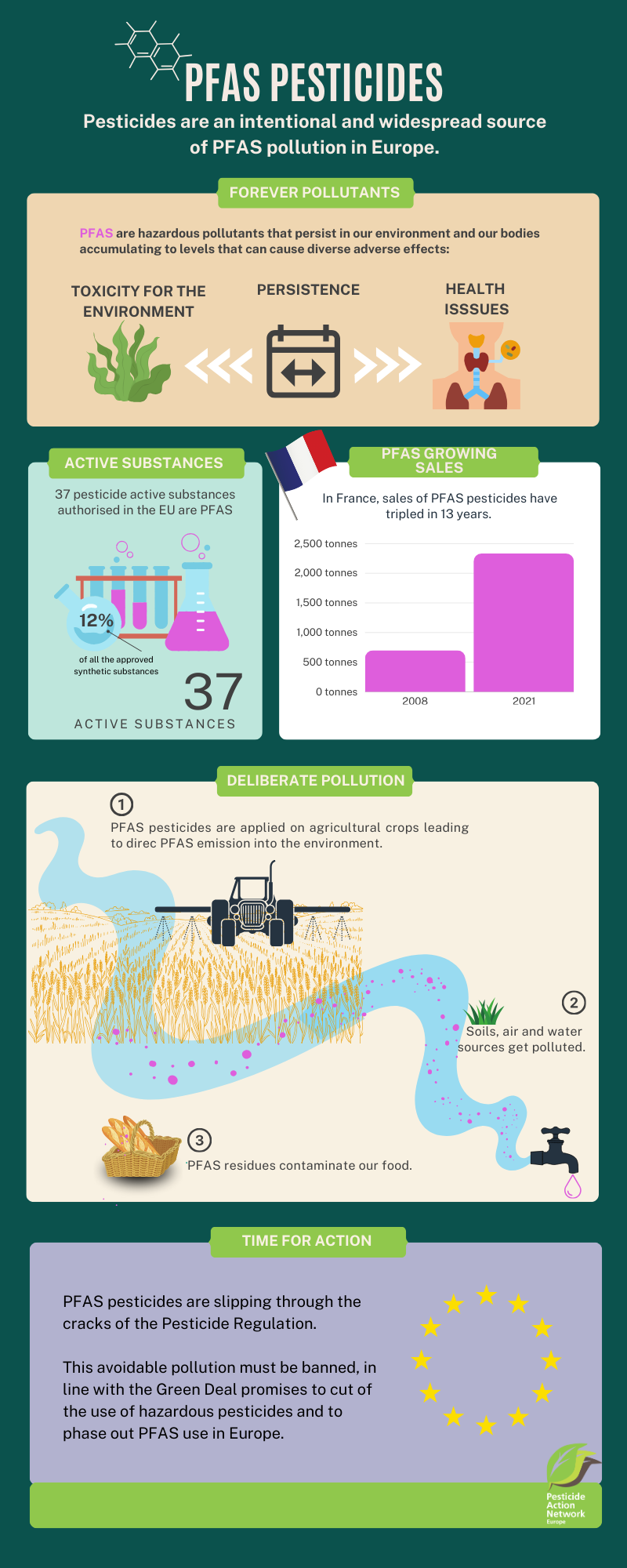Executive Summary
We reveal the presence of eternal pollutants (PFAS) among pesticide active substances. These hazardous substances are exempted from the forthcoming European restriction, while their use in agriculture is rising. Immediate action is needed to get them banned.
In recent times, public concern regarding Per- and Polyfluoroalkyl Substances (PFAS) has heightened, primarily because of their widespread pollution and toxic properties. PFAS are hazardous and persistent pollutants that threaten our health and environment. Known as "forever chemicals" once released, they persist for generations.
While PFAS contamination is often attributed to ‘accidental’ industrial emissions or negligent pollution, our report uncovers an intentional and widespread source of PFAS pollution: the PFAS pesticides. Specifically, currently 12% (37) of the synthetic active ingredients authorised for pesticide use in the European Union are PFAS, all containing strong carbon-fluoride bonds, enhancing their persistence in the environment, or of their degradation products (i.e. metabolites). These 37 active substances are deliberately sprayed across EU agricultural fields, contaminating our food, water, and the environment. Europe is giving its consent and the pesticide industry is cashing its profits.
An analysis of the French sales data for these substances raises alarms on the rising popularity of PFAS pesticides. Between 2008 and 2021, their sales in France increased dramatically, tripling in magnitude. This indicates massive spraying of PFAS pesticides in open fields, leading to significant exposure of French citizens and the environment.
Chemical companies are well aware of the PFAS problem, but the pesticide producers such as Bayer, Syngenta and BASF hide their liability behind a lack of regulation. Despite the European Union’s intention to ban all PFAS chemicals through a EU-wide restriction, PFAS pesticides have been excluded, under the assumption that these are regulated under EU Pesticide Regulation. Our report reveals that the current pesticide assessment fails to address the presence of PFAS in pesticide products due to shortcomings in implementation of the EU Regulation. PFAS pesticides are slipping through the cracks of a flawed pesticide assessment system, while regulators are turning a blind eye at the expense of our health and that of our environment.
Pesticides are among the first sources of PFAS exposure for citizens, whether through residues in their food and water, or via direct exposure, especially impacting farmers, farmworkers and bystanders. The use of PFAS in pesticides poses an entirely avoidable threat to the health and environment of not just the current generation but also those to come. At a moment where EU regulators have promised to its citizens under the European Green Deal to drastically decrease pesticide dependency, urgent action is not a choice but a necessity. PAN Europe and Générations Futures demand an immediate ban on all PFAS pesticides.

